 My name is Inge Wortel, I am Dutch, and currently a PhD candidate at the Department of Tumor Immunology, theme Cancer development & immune defense.
My name is Inge Wortel, I am Dutch, and currently a PhD candidate at the Department of Tumor Immunology, theme Cancer development & immune defense.
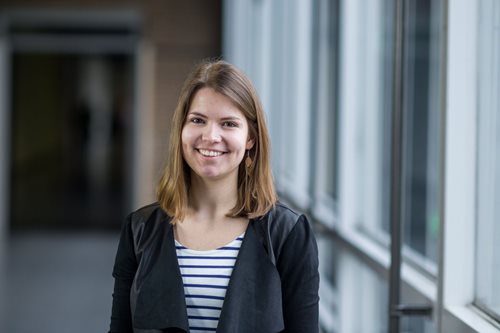
1. When you were a kid what did you want to be when you grew up? Can you tell us something about your child years.
While I was a kid, my career aspirations evolved from princess (when I was about 3 years old; this was before I figured out that I would have to marry a prince…) to detective, writer of children’s books, interior designer, elementary school teacher, and eventually doctor. Of course that last one is still on the agenda, except now I am aiming for a different type of doctor…
2. What was your previous academic training, where did you study and why that study?
I started my Bachelor’s in Molecular Life Sciences here in Nijmegen because I was intrigued by the combination of chemistry and biology. I then ended up studying Chemistry as well, because I also wanted to follow some more theoretical physical chemistry courses and there was quite some overlap between the programs anyway. During my Bachelor’s, I developed a strong interest in cancer research – which is why I followed the Molecular Mechanisms of Disease research Master’s program. And now I am very excited that I can combine my love for theory and for cancer research in my PhD project on computational (tumor-) immunology!3. The RIMLS motto is: ‘Today’s molecules for tomorrow’s medicine’. What does this mean for you?
I think this motto is a great reminder that in the end, what we are doing this all for is to help patients. But also that the benefit in the clinic can be a goal for the future and should not be the only goal of current-day research. Even if you are doing translational research, as a scientist you need to keep asking critical questions about what is happening and why, and not get stuck in your preconceived notion of what you think should be going on. For me, the RIMLS motto is all about maintaining this curiosity about how life works while still keeping in mind potential clinical applications for later on.4. Who is your great example as scientists? And please give a motivation why.
Max Planck, the physicist who is now considered one of the founding fathers of quantum theory. He introduced the idea that electromagnetic energy (eg light) only comes in discrete “quanta” of energy that we now know as photons. The thing is, this theory went against everything classical physics stood for, and he himself did not really believe in it at the time – he just thought of it as a mathematical trick! But he stuck with it anyway as long as it fit the data best. I hope I can manage that kind of open-mindedness in my own work: looking for the theory that best explains all the facts, rather than being blinded by your own, original hypothesis.5. Which research discovery that you have made has made you most proud?
My current project on negative selection, the process that every immunology textbook will tell you induces self-tolerance by removing immune cells that react to “self”. Turns out, that is not as easy as it seems… I think it is really cool to work on such a fundamental theory and then discover that we don’t understand it as well as we think.6. Given unlimited finance what experiment would you perform?
I would gather lots of data, buy a couple of supercomputers, hire many smart people, and build the ultimate computer model of the tumour microenvironment - so that we can understand how it works and use it to predict the best therapy for any given cancer patient.7. What does your working area (desk, office) look like and what does it say about you (or your research)?
My desk is almost always messy, filled with pieces of paper full of notes and drawings and to-do lists that I use to try to structure my thoughts; I get new ideas at random moments and they distract me if I don’t write them down. My desk also contains a plant and a coffee mug in the brightest colours I can find, because I like cheerful things.8. Nominate a colleague to be in the spotlight and what would you like to ask him or her?
Elke Muntjewerff! I would ask her what the secret is behind her famous “woo”-factor.10. What type of person are you, quick insights:
a) Mac or PC? : Macb) Theater or cinema? : Cinema
c) Dine out or dine in? : Dine in
d) Ferrari or Fiat? : Fiets! I don't drive.
e) Shopaholic or chocoholic? : Chocoholic
f) Culture or Nature : Nature
Related news items
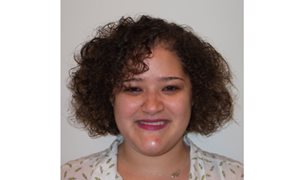
T cell immunity is directed by tetraspanin CD53
5 July 2022 T cells are immune cells that are key for the defense against pathogens and cancer. T cells depend on the membrane protein CD45 to initiate T cell receptor signaling, but how CD45 is controlled at the molecular level is poorly understood. go to page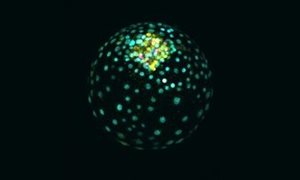
A single protein complex balances the very first lineage decision of cells in human: towards foetus or placenta
21 June 2022 The international group of researchers spearheaded by Dick Zijlmans and Hendrik Marks together with colleagues from KU Leuven, examined which proteins are associated with the chromatin and how this affects gene transcription. go to page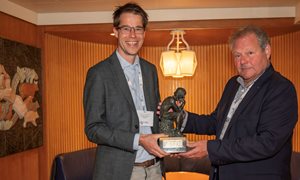
Dutch Society of Clinical Chemistry Science & Innovation Award for the team of Hans Jacobs
14 June 2022 The team of Hans Jacobs pioneers on the development of personalized diagnostics to measure minimal residual disease in patients with multiple myeloma. go to page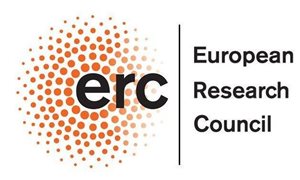
European grants for groundbreaking Radboudumc research Professors Roshan Cools and Peter Friedl receive ERC Advanced Grant
26 April 2022The European Research Council (ERC) is awarding grants to Roshan Cools and Peter Friedl, both professors at Radboudumc. While Cools will investigate how brains control behaviour in (stressful) situations, Friedl will work on developing a new cancer therapy.
go to page
Saponin-based adjuvant-induced dendritic cell cross-presentation is dependent on PERK activation published in Cellular and Molecular Life Sciences
20 April 2022 Lisa Huis in ‘t Veld, Nataschja Ho and colleagues from the team of Gosse Adema published in Cellular and Molecular Life Sciences that Saponin-based adjuvant-induced dendritic cell cross-presentation is dependent on PERK activation. go to page
Rubicon grants awarded to three RIMLS researchers
19 April 2022Three researchers have received Rubicon funding from NWO/ZonMw. This will enable Elke Muntjewerff, Laura de Vries and Laurens van de Wiel to do research at a foreign research institute for the next two years.
go to page